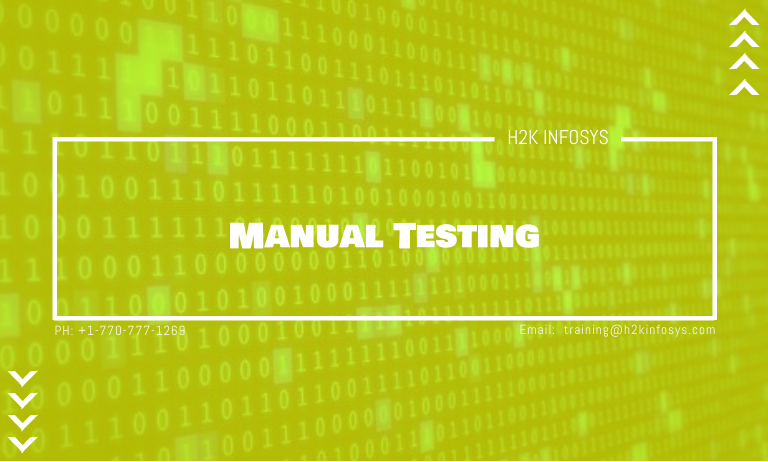Business analysts play an essential role in bridging the gap between business and technology. They are crucial in translating business analysis concepts into technical terms that developers and IT teams can understand and, conversely, explaining complex technical details to non technical business stakeholders. This dual expertise enables business analysts to ensure that business needs are met with effective technological solutions.
In today’s fast-paced and technology driven world, business analysts are more important than ever. Technology is at the core of all modern businesses, driving innovation, efficiency, and competitiveness. However, simply having advanced technology isn’t enough; companies must know how to leverage it to solve real-world business challenges. This is where business analysts come in. They use cutting-edge analytical methodologies, tools, and frameworks to analyze data, processes, and systems, ensuring that businesses can make data-driven, strategic decisions.
Whether it’s optimizing a company’s operations, enhancing customer experience, or improving profitability, business analysts are the ones who identify inefficiencies, predict future trends, and recommend solutions. Their ability to translate complex business problems into actionable insights allows managers and decision-makers to make informed choices that align with both immediate goals and long-term strategies.
Furthermore, business analysts aren’t just focused on problem-solving; they also play a key role in ensuring that businesses stay ahead of the curve. By bringing business analysis best practices to the table and keeping up with emerging technologies, they help companies adapt to new market demands, navigate changes, and seize opportunities for growth. In a world where data is the new currency, the role of business analysts in transforming raw data into valuable insights is indispensable for business success. Enrolling in a Business Analysis Online Training equips professionals with the skills needed to thrive in this critical role and drive success.
Business analysis definition
Business Analysis is the practice of identifying business needs, problems, or opportunities and determining solutions that deliver value to stakeholders. It involves understanding how an organization functions, analyzing processes, gathering requirements, and facilitating communication between business stakeholders and technical teams.
At its core, Business Analysis is about bridging the gap between business goals and technology solutions. Business Analysts (BAs) play a critical role in translating complex business needs into clear, actionable requirements that developers, designers, and project teams can work with.
Business Analysis is used in a wide range of environments from IT projects and product development to operational improvements and strategic planning. The scope of work may involve creating business process models, conducting stakeholder interviews, writing business requirement documents (BRDs), functional requirement documents (FRDs), and even supporting user acceptance testing (UAT).
A skilled Business Analyst ensures that projects align with business objectives, meet stakeholder expectations, and are delivered on time and within scope. They use various techniques such as SWOT analysis, root cause analysis, and requirements elicitation methods like interviews, surveys, and workshops.
Modern Business Analysis also includes Agile methodologies, where BAs collaborate closely with Product Owners, write user stories, and assist in sprint planning. With the growing reliance on data, many BAs also leverage tools like Excel, SQL, and data visualization software to support decision-making.
In summary, Business Analysis is a structured, problem-solving discipline that ensures organizations build the right solutions to solve the right problems making it an essential function in both technology and business driven initiatives.
What does it mean to be technical?
Being technical refers to possessing the knowledge, skills, and ability to understand, apply, or interact with technology or specialized systems. It typically means having a solid grasp of how things work at a practical or mechanical level whether in software, engineering, IT infrastructure, or other technical domains.
In the context of modern work environments, being technical often involves understanding tools, platforms, and processes that support digital systems. For example, a technical person in software development may know programming languages, understand APIs, work with databases, or manage system architecture. In contrast, someone in a non-developer role like a Business Analyst or Product Manager can still be technical if they understand how software is built, how to write structured requirements, or how to use tools like JIRA, SQL, and data visualization platforms.
Being technical doesn’t always mean being able to code, but it does imply the ability to engage with technical details, think logically, and communicate effectively with developers, engineers, or technical teams. It also includes problem-solving, learning new systems quickly, and applying structured methods to analyze and address complex issues.
In essence, being technical means you can understand and contribute to discussions involving systems, tools, and structured processes even if you’re not the one building them. This makes “technical” professionals highly valuable, as they can bridge gaps between business needs and technological execution, enabling smoother workflows and smarter decision-making.
Past and future of business analysis
The role of Business Analysis has evolved significantly over the past few decades. In its early days, Business Analysts primarily worked within Waterfall project frameworks, focusing on detailed documentation, lengthy requirement gathering phases, and rigid scope definitions. The role was largely reactive BAs served as requirement scribes, documenting business needs after decisions were made by stakeholders and then handing them off to development teams.
In the past, tools were basic Excel, Word, and flowcharts were standard. Communication between business and IT was often siloed, leading to misinterpretations, delays, and mismatched outcomes.
Fast forward to today, and the landscape of Business Analysis is more dynamic, collaborative, and technology-driven. The rise of Agile methodologies, digital transformation, and data-centric decision-making has reshaped the BA’s role. Modern Business Analysts are embedded in cross-functional teams, engaging throughout the product lifecycle. They now participate in backlog refinement, write user stories, work closely with developers and testers, and contribute to product strategy.
Looking ahead, the future of Business Analysis will be deeply influenced by emerging technologies. BAs will need to be fluent in AI, automation, cloud platforms, and data analytics. Soft skills will continue to be critical, but technical literacy will become a competitive advantage. Business Analysts will also transition from being requirement gatherers to becoming strategic advisors and change enablers, helping organizations adapt quickly to market demands and technological innovations.
As businesses strive for agility, efficiency, and innovation, Business Analysts will play a vital role in bridging the gap between people, processes, and technology not just reacting to change, but driving it.
Is business analysis a technical role?
Business Analysis is often seen as a bridge between business needs and technical solutions—but does that make it a technical role? The answer depends on the context of the organization and the specific responsibilities of the Business Analyst (BA). Generally speaking, Business Analysis is not purely technical, but it does require a strong understanding of technology and the ability to work closely with technical teams.
At its core, the Business Analyst’s role is to identify business problems, gather and document requirements, and help ensure that the final product or solution meets stakeholder expectations. This requires critical thinking, strong communication, and analytical skills. However, in technology-driven environments, BAs must also be comfortable working with systems, data, and digital tools.
While Business Analysts aren’t expected to write code or design architecture, they do interact with technical platforms and tools such as JIRA, SQL, Confluence, Excel, Power BI, and Visio. They may need to understand how APIs work, how data flows through a system, or how to model processes using BPMN. This is especially true in Agile settings where BAs write user stories, define acceptance criteria, and support sprint planning.
In many modern roles, being a “technical Business Analyst” means having enough technical literacy to communicate effectively with developers, testers, and data teams. It’s about understanding how things work, even if you’re not building them yourself.
Therefore, while Business Analysis isn’t strictly a technical role like software development or system engineering, it blends business and technology. The more technically fluent a BA is, the more effective they can be especially in industries like IT, finance, healthcare, and SaaS, where digital systems are central to operations.
Business Analysis is a hybrid role. It’s not defined by coding, but by the ability to translate business needs into technical realities, making it one of the most versatile and valuable roles in the tech industry.
Impact of business analysts in the tech community
Business Analysts (BAs) play a transformative role in the tech community by acting as the critical link between business stakeholders and technical teams. Their impact extends far beyond simple documentation they help ensure that technology solutions are aligned with real-world business needs, enhancing the value and effectiveness of tech initiatives.
In a field where software development cycles, cloud integration, and data driven decisions are becoming the norm, BAs provide clarity, structure, and direction. They bridge communication gaps between developers and decision-makers, ensuring that technical teams fully understand what the business wants, and business leaders understand what technology can deliver. This helps reduce miscommunication, minimizes rework, and leads to faster project delivery.
BAs also play a key role in shaping digital transformation strategies. From defining functional requirements and mapping business processes to identifying automation opportunities, they guide the development of systems that optimize efficiency and user satisfaction. By using tools like JIRA, Visio, SQL, and Power BI, they analyze data and workflows, contributing significantly to process improvement and performance tracking.
In Agile environments, Business Analysts often support Product Owners, helping write user stories, prioritize backlogs, and ensure customer-centric product development. Their presence enhances team agility, promotes collaboration, and strengthens the feedback loop between users and developers.
Moreover, BAs contribute to fostering innovation by identifying emerging trends, gathering competitive intelligence, and recommending scalable tech solutions. Their analytical mindset and holistic understanding of both business and technology enable organizations to make smart, strategic decisions.
In summary, the impact of Business Analysts in the tech community is profound. They help ensure that technology serves its purpose not just as a solution, but as a strategic enabler of business growth and innovation. As tech continues to evolve, the role of BAs will remain central to building systems that are both functional and forward-thinking.
The Role of Business Analyst in the Tech Community
In today’s rapidly evolving digital landscape, the role of a Business Analyst (BA) in the tech community has become more vital than ever. Acting as a strategic link between business objectives and technological solutions, Business Analysts ensure that innovation aligns with organizational goals, user needs, and market demands.
A Business Analyst in the tech space is responsible for identifying and defining business requirements, analyzing complex processes, and proposing efficient solutions. They work closely with stakeholders including clients, end users, developers, designers, product owners, and testers to gather insights, validate needs, and translate them into actionable specifications.
In Agile environments, BAs often collaborate with Product Owners to create user stories, define acceptance criteria, and maintain a well-groomed product backlog. Their role involves ensuring clear communication between technical and non-technical teams, reducing misunderstandings, and minimizing the risk of project failure.
Beyond just gathering requirements, BAs evaluate systems using tools like JIRA, Confluence, Microsoft Visio, SQL, and data visualization platforms like Power BI or Tableau. This enables them to analyze data-driven decisions, map current and future state processes, and identify opportunities for automation or improvement.
In the tech community, where cross-functional collaboration is key, Business Analysts also serve as facilitators, negotiators, and problem solvers. They help ensure that developers build the right solutions and that business goals are met efficiently and effectively.
Ultimately, the Business Analyst plays a critical role in bridging the gap between innovation and execution. By blending business acumen with technical understanding, BAs empower tech teams to build better products, optimize operations, and deliver real value to end users.
As technology continues to shape industries, the presence of skilled Business Analysts will remain essential in driving meaningful transformation within the tech ecosystem.
Here are some pointers you can use while looking for candidates for a position as a business analyst: A business analyst needs to be proficient in writing and may or may not utilise English as a second language, depending on the employer. A solid understanding of company operations is another thing that is required.
Conclusion
To become a business analysis specialist, there are no shortcuts or easy paths to success. Companies that hire business analysts are highly selective, often choosing from the top 50 BAs in the United States. These top-tier professionals possess not only extensive knowledge and experience but also a strong desire to continue their education and obtain professional credentials that keep them competitive in an ever-evolving field.
Business analysts play a pivotal role in bridging the gap between technology and business operations. By leveraging their expertise, they help companies implement strategies, optimize processes, and make data-driven decisions. But the journey to becoming a business analyst specialist involves a deep commitment to learning, countless hours of reading, researching, and studying to stay abreast of industry trends, tools, and techniques.
This dedication to continual growth has a significant impact on how business analysts and technology providers interact within their enterprises. It’s this expertise that allows them to drive efficiency, innovation, and value, ensuring that companies stay competitive in the marketplace. For those looking to enter this dynamic and rewarding profession, pursuing a business analyst course online is an excellent first step. These BA Course offer comprehensive training, covering everything from fundamental concepts to advanced techniques, preparing aspiring analysts to excel in the competitive business environment.
By taking the time to acquire the necessary skills and certifications, you can position yourself as a valuable asset to any organization. Investing in your education now will pay off in the long run, opening up career opportunities and helping you stand out among your peers
Driving Strategic Decisions: Business analysis plays a crucial role in the tech community by providing insights that guide strategic decisions, helping companies align technology solutions with business goals.
Improving Efficiency and Processes: Through detailed data analysis and process optimization, business analysts help tech organizations streamline operations, leading to improved efficiency and cost savings.
Facilitating Communication Between Teams: Business analysts serve as the bridge between technical teams and stakeholders, ensuring clear communication and helping deliver successful tech projects on time and within scope.
Ready to make an impact in the tech community? Enroll in Business Analyst online Classes Program to gain the skills you need to drive strategic decisions, improve processes, and bridge communication gaps in leading tech organizations!


























